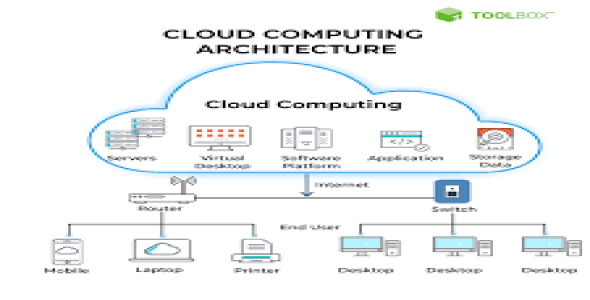Blog Details

17
Jan
Demystifying the Cloud: How Cloud Computing Transforms Business
In the digital age, the term "cloud computing" has become ubiquitous, revolutionizing the way businesses operate and individuals access information. It's a technology that has transformed the world of IT and beyond. In this blog post, we'll demystify cloud computing, explore its impact on businesses, and discuss how it's changing the way we work and connect.
The Cloud Computing Landscape:
At its core, cloud computing refers to the delivery of various services—such as storage, databases, servers, networking, software, and more—over the internet. Instead of relying on a local server or personal computer to handle these tasks, businesses and individuals can now tap into remote servers and data centers that are accessible from anywhere in the world.
Benefits of Cloud Computing:
The adoption of cloud computing has surged in recent years due to a multitude of benefits it offers:
Cost-Efficiency: Cloud computing eliminates the need for businesses to invest heavily in physical hardware and infrastructure. Instead, they pay for the services they use, reducing capital expenditure.
Scalability: Cloud resources can be easily scaled up or down to meet business needs. This agility is especially valuable for companies with fluctuating demands.
Accessibility: With the cloud, data and applications are accessible from any location with an internet connection, enabling remote work and collaboration.
Reliability: Leading cloud providers ensure high levels of uptime, data redundancy, and disaster recovery, reducing the risk of downtime.
Security: Cloud providers invest heavily in security measures, often exceeding what individual businesses can afford. This results in robust data protection.
Types of Cloud Services:
Cloud computing is typically categorized into three service models:
Infrastructure as a Service (IaaS): IaaS provides virtualized computing resources over the internet, such as virtual machines, storage, and networking.
Platform as a Service (PaaS): PaaS offers a platform that allows developers to build, deploy, and manage applications without dealing with the underlying infrastructure.
Software as a Service (SaaS): SaaS delivers fully functional software applications over the internet on a subscription basis. Users can access these applications via a web browser.
Cloud Computing in Business:
Businesses of all sizes are leveraging cloud computing to enhance their operations. Some common use cases include:
Data Storage and Backup: The cloud provides a secure and cost-effective solution for storing and backing up critical data.
Scalable Computing: Companies can access additional computing resources during peak demand, ensuring smooth operations.
Collaboration: Cloud-based collaboration tools like Google Workspace and Microsoft 365 have become essential for remote work and team productivity.
Application Development: Developers benefit from cloud platforms that simplify the development and deployment of applications.
Data Analysis: Cloud services make it easier for businesses to analyze vast amounts of data, uncover insights, and make data-driven decisions.
The Future of Cloud Computing:
As cloud technology continues to evolve, we can expect even greater innovations and advancements. Topics such as edge computing, serverless architecture, and AI-powered cloud services will shape the future of cloud computing and its applications.
In conclusion, cloud computing has democratized access to powerful technology and transformed the way we live and work. It's no longer a question of whether businesses should adopt the cloud, but how they can best leverage it to stay competitive and innovative in a rapidly changing world.
Stay tuned for more insights and updates right here on Software World's blog as we explore the ever-evolving landscape of technology and its impact on our lives and businesses



